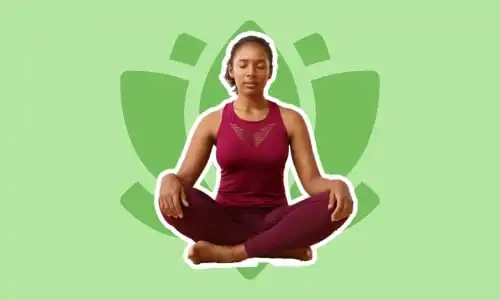
4 steps to becoming a life coach
A life coach is someone who works with people to forge a path through life’s barriers to become the best version of themselves. It is rewarding, challenging work, and it can be done from anywhere in the world, which makes it increasingly popular as a profession. This is your comprehensive guide on how to become a life coach, in just four steps.
What is coaching?
The International Coaching Federation (ICF) defines coaching as “partnering with clients in a thought-provoking and creative process that inspires them to maximize their personal and professional potential.”
Currently, there seems to be broad agreement that coaching:
- is a managed conversation that takes place between two people;
- aims to support sustainable change to behaviours or ways of thinking; and
- focuses on learning and development.
Coaching is a conversational process based on a set of easily learned techniques. In fact, you already possess the skills needed to be a coach: the ability to listen to others, to ask questions, and to summarise. From here, it is simply a case of honing these skills to effectively facilitate thought-provoking one-on-one conversations with others.
Sir John Whitmore, a pioneer of the executive coaching industry, advocated that coaching was all about developing or raising two things in the client: their level of awareness and their level of responsibility. ‘If I give you my advice and it fails, you will blame me’, he famously said, ‘I have traded my advice for your responsibility and that is seldom a good deal.’
What is a life coach?
A life coach is a type of wellness professional who helps people make progress in their lives in order to attain greater fulfilment. Life coaches help their clients improve their relationships, careers, and day-to-day lives.
Life coaches can help you clarify your goals, identify the obstacles holding you back, and then foster a creative space where strategies for overcoming each obstacle can be realised. In creating these spaces for strategies, life coaches target your unique skills and gifts. By helping you to make the most of your strengths, life coaches provide the support you need to achieve long-lasting change.
Considering that you are reading this article, it is likely that you already possess an essential and necessary attribute: a desire to support others to achieve more of their potential. Coaching is a powerful and rewarding activity, and in some cases, it can be life-changing – for you as well as the client.
Difference between a life coach and a therapist or counsellor
Although there may be some overlap in the benefits of working with a life coach and participating in psychotherapy with a licensed therapist, these professionals have distinct roles and serve unique purposes.
Unlike life coaches, therapists and other mental health professionals focus on healing, treating mental health conditions, and helping people work through trauma and other issues from their past. While working with a life coach may help you to deal with certain unresolved issues, life coaches cannot treat mood disorders, anxiety disorders, addiction, or any other mental health condition.
Skills required as a life coach
A good life coach has the following skills:
- Great listener
- Excels in problem solving
- Enjoys a good challenge
- Has the ability to focus
- Willingly offers client encouragement and support
- Is able to be clear and concise
- Can see through the ‘fog’ to the core issues
- Has a wide variety of life experience
- Is open to different ideas
- Can easily build rapport with people
- Is willing to challenge clients where needed
- Feels comfortable holding others accountable

What does a life coach do?
A life coach can do a lot of things for their clients but they mostly revolve around making them ‘unstuck’ and moving forward against the odds.
We tend to go through life on auto-pilot. Most of us don’t realise what we are capable of. This is where you can really help people as life coaches. The most meaningful things a life coach can do include:
- helping them discover their life’s purpose;
- becoming their motivator;
- acting as a strategist;
- keeping them accountable; and
- helping them establish more meaningful relationships.
How to become a life coach
Step 1: Decide how you want to use your coaching skills
Does a person learn how to do coaching or do they become a coach? This is an important question, and there are several different ways of addressing it. Many people learn to coach in a transactional way, focusing narrowly on the process. For example, I remember hearing some managers, who had recently received coaching training, discussing the idea of ‘putting on a coaching hat’ before starting to coach others. There is no doubt that this is possible. A person can ‘do’ coaching without ‘being’ a coach. However, if you are hoping to inspire others and support them to achieve great things for themselves, I believe that you have to become a coach.
To become a coach requires three areas of learning: a set of skills, a clear process and a ‘coaching way of being’. The first two (the skills and the process) can be taught, and often form the basis of short training courses on coaching. But simply understanding the skills and following a process will not guarantee successful outcomes. They allow a person to ‘do’ coaching. The third element is the most influential.
Hopefully, you will be able to quickly develop the coaching-related skills and master a conversational process. Developing a ‘coaching way of being’, on the other hand, is a lifelong journey. The good news is that the best way of developing this ‘way of being’ is through practising coaching and reflecting on your experiences.
Step 2: Get certified and credentialed
If you are serious about joining the life coaching profession, and helping people improve different areas of their life, it requires specialised training to be effective, as it is a big responsibility. As John Kim, co-founder of JNRI Coaching, writes, ‘Life coaching is a craft and takes practice and education, like any other profession. You need a foundational know-how before you can coach.’
Why do you need credentials?
Earning a certification in addition to a degree can go a long way toward gaining the trust of potential clients. There’s no governing body that requires you to pass a test or earn a specific degree to become a life coach, but earning life coach credentials from a recognised organisation boosts your credibility.
Check out these stats from the ICF:
- 77% of coaches agreed that clients expect them to be certified or credentialed.
- 83% of coaching clients reported that it was important for coaches to hold a credential.
- People are more likely to recommend a coach who holds a credential than a coach who does not.
Credentials, which are provided by professional associations like the International Coach Federation (ICF) and the International Association of Coaching, require expertise and a demonstration of high work standards.
Life coaching certification
The Upskillist online life coaching course covers everything you need to become a world class coach, and will be an important part of your development as a coach. By the time you have completed the 16-week course, watched the related video clips and completed the assignments, you will be ready to start your journey coaching others, and you’ll also be equipped with valuable skills that can help you in your professional and personal life.
However, learning the ‘coaching way of being’ is the endeavour of a lifetime. Like many other forms of personal and professional learning, coaching requires determined practice and intentional reflection. Upon completion of your Upskillist academy life coaching course, you will be issued with a globally recognised certification. However, Upskillist is not affiliated with third-party standardising organisations or accrediting agencies, and we highly recommend becoming a member at your local standardising body organisation, accrediting agencies or international professional associations like the International Coach Federation and the International Association of Coaching.
In order to start a credentialing process at the ICF, you will need to continue your coach studies for another 48 hours of synchronous coach-specific training that meets ICF standards, as Upskillist Academy’s course provides 12 of the 60 training hours needed for ICF credentialing.

Step 3: Find your niche
There are several different areas in which coaching is flourishing. They are:
- Executive coaching: working in organisations with middle and senior leaders.
- Life coaching: working with individuals on topics relating to their personal lives.
- Health coaching: working with patients and health professionals.
- Coaching in education: working with students, educators and parents.
- Career coaching: working with professionals about their career development.
- Leadership coaching: working with leaders in any profession or field.
Should you embark on a journey of becoming a coach, you may wish to start thinking about which of these areas is of interest to you. Often the specific avenue you choose is the one you already have some credibility in, because you’re naturally inclined towards it. This is called choosing a niche, or specific area of focus.
A niche helps you determine the kinds of issues you’ll help your life coaching clients with, as well as your area of expertise.
When getting started with clients, transparency is key. We’ve all got to start practising somewhere but being open and honest about the level of training we’ve received is vital.
Step 4: Build your coaching practice
To gain a proper return on investment for your marketing efforts, it is imperative that you are able to identify your target market; otherwise, you might be wasting money and spending it in areas that will reap no reward.
Once you have identified your target market, focus on it. Don’t actively go after people who are outside of your target market.
When trying to identify a target market that is right for you, look at three areas:
- Your experience (professional and life): you will find it easier to attract clients with whom you have something in common, i.e., same industry; certain position; particular life stage or lifestyle.
- Level of interest: how interested are you in your target market? It will need to come through in your energy, enthusiasm and passion. If you aren’t truly interested in your chosen population, you will find difficulty in attracting them.
- Geographical location: even though today we can coach all over the globe, the majority of coaches find most of their clients within a 30-mile radius of their homes.
How much do life coaches make?
Your earning potential will vary depending on your years of experience, geographical location (for instance, metropolitan areas seem to have slightly higher hourly rates), and many other factors. As a rough guide, consider charging:
- between $75 and $200 per hour / session; or
- a monthly fee of between $200 and $750 per month.
Want to become a life coach?
Upskillist’s Diploma in Coaching will guide you through the process of becoming a life coach. In just 16 weeks, you’ll learn all the practical skills you need to be an effective coach, and be ready to start your journey to becoming a credentialed professional.


